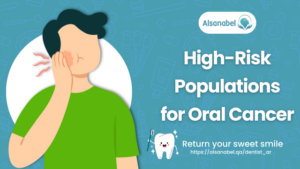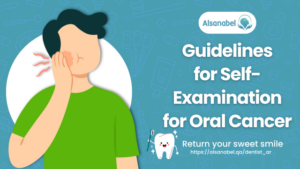The silent encroachment of oral cancer is often undetectable to the untrained eye, making regular screenings an essential weapon in the early detection and successful treatment of the disease. Recognizing the risks can be a lifesaver, as certain behaviors and genetic predispositions significantly heighten the likelihood of developing oral cancer. With dental professionals advocating for routine examinations, especially for high-risk groups, understanding who should stand in the line of defense against oral cancer is crucial. In this post, we dive into the guidelines for oral cancer screenings and walk through what an examination entails, emphasizing the importance of vigilance in safeguarding our health, one screening at a time.
High-Risk Populations for Oral Cancer
High-risk populations for oral cancer include individuals with certain lifestyle habits, medical conditions, or demographic characteristics that increase their likelihood of developing the disease. Here are some groups considered to be at higher risk:

- Tobacco Users: Smoking cigarettes, cigars, pipes, or using smokeless tobacco (chewing tobacco, snuff) significantly increases the risk of it. Tobacco contains carcinogens that can damage cells in the mouth and lead to cancerous growths.
- Heavy Alcohol Consumers: Excessive alcohol consumption, especially when combined with tobacco use, is a significant risk factor for it. Alcohol can irritate the cells in the mouth, making them more susceptible to cancer-causing agents.
- Human Papillomavirus (HPV) Infection: Certain strains of HPV, particularly HPV-16 and HPV-18, are linked to an increased risk of it. HPV can be transmitted through sexual contact, and individuals with multiple sexual partners or a history of sexually transmitted infections may be at higher risk.
- Age: The risk increases with age, with the majority of cases diagnosed in individuals over 55 years old. However, it’s important to note that cancer can occur at any age, including in younger individuals.
- Gender: Historically, men have been at higher risk of developing oral cancer compared to women. However, this gap has been narrowing in recent years due to changing patterns of tobacco and alcohol use among women.
- Sun Exposure: Prolonged exposure to sunlight, particularly to the lips, increases the risk of lip cancer. Outdoor workers, individuals who participate in outdoor recreational activities without sun protection, and those living in sunny climates are at higher risk.
- Poor Oral Hygiene: Neglecting oral hygiene practices, such as regular brushing and flossing, and avoiding dental check-ups can contribute to an increased risk of it. Poor oral hygiene may lead to chronic irritation and inflammation of oral tissues, which can predispose them to cancerous changes.
- Dietary Factors: A diet low in fruits and vegetables and high in processed foods may increase the risk of it. Consuming a diet rich in fruits, vegetables, and whole grains provides essential nutrients and antioxidants that help protect against cancer.
- Genetic Factors: Some individuals may have a genetic predisposition to developing that cancer, either due to inherited genetic mutations or family history of the disease.
It’s important for individuals in high-risk populations to be vigilant about oral health, undergo regular oral cancer screenings at AL-SANABEL best dental clinic in Qatar , and adopt healthy lifestyle habits to reduce their risk of developing oral cancer. Early detection and intervention can significantly improve outcomes for that cancer patients.
The Necessity of Regular Oral Cancer Screenings
Regular oral cancer screenings at AL-SANABEL dental clinic are crucial for several reasons:
- Early Detection: Oral cancer often presents with subtle or asymptomatic symptoms in its early stages, making it difficult to detect without professional examination. Regular screenings increase the likelihood of identifying abnormalities or suspicious lesions early, when treatment is most effective and outcomes are generally more favorable.
- Improved Survival Rates: Early detection of oral cancer is associated with higher survival rates. When oral cancer is diagnosed at an early stage, before it has spread to nearby tissues or metastasized to distant organs, treatment options are less invasive and more likely to be successful.
- Preventive Intervention: Regular screenings allow for the identification of precancerous lesions or early-stage cancerous growths that can be promptly treated or monitored to prevent progression to advanced disease. This proactive approach to detection and management helps reduce the risk of serious complications associated with untreated oral cancer.
- Risk Assessment: Oral cancer screenings provide an opportunity for healthcare providers to assess individual risk factors for oral cancer, such as tobacco and alcohol use, HPV infection, sun exposure, and family history. Based on this assessment, appropriate preventive measures and lifestyle recommendations can be tailored to each patient’s needs.
- Comprehensive Oral Health Care: Incorporating oral cancer screenings into routine dental check-ups promotes comprehensive oral health care. By addressing both dental and oral health concerns during regular appointments, healthcare providers can help patients maintain optimal oral health and well-being.
- Patient Education: Oral cancer screenings offer an opportunity for patient education and awareness about the signs, symptoms, and risk factors associated with oral cancer. Patients can learn about the importance of self-examination, tobacco cessation, sun protection, and other preventive measures to reduce their risk of developing oral cancer.
- Peace of Mind: For individuals at higher risk of oral cancer due to lifestyle habits or other factors, regular screenings provide peace of mind knowing that their oral health is being closely monitored by a healthcare professional. This proactive approach to health maintenance can alleviate anxiety and promote overall well-being.
In summary, regular oral cancer screenings are essential for early detection, preventive intervention, risk assessment, comprehensive oral health care, patient education, and peace of mind. By incorporating oral cancer screenings into routine healthcare practices, healthcare providers can play a critical role in reducing the burden of oral cancer and improving patient outcomes.
Guidelines for Self-Examination for Oral Cancer
Regular self-examination for oral cancer is important for early detection and treatment. Here are some guidelines for conducting a self-examination:

- Use good lighting: Perform the examination in a well-lit area with a mirror.
- Inspect the lips: Look at your lips for any abnormalities such as sores, lumps, or changes in color or texture. Pull your lips outward and check both the outer and inner surfaces.
- Examine the gums: Lift your upper and lower lips to inspect your gums. Look for any discoloration, swelling, or sores.
Check the roof of your mouth: Tilt your head back and use a flashlight to examine the roof of your mouth. Look for any changes in color, lumps, or sores. - Inspect the inside of your cheeks: Use your fingers to pull your cheeks outward and inspect the inside surfaces for any abnormalities such as white or red patches, sores, or lumps.
- Examine the tongue: Stick out your tongue and inspect all surfaces, including the sides and underneath. Look for any changes in color, lumps, or persistent sores.
- Check the floor of your mouth: Use your fingers to feel the floor of your mouth for any lumps or abnormalities.
- Examine the back of your throat: Use a flashlight and a mirror to examine the back of your throat. Look for any swelling, redness, or abnormalities on the tonsils, the back of the tongue, and the throat walls.
- Monitor any changes: Pay attention to any changes in your mouth that persist for more than two weeks, including sores that don’t heal, pain, difficulty swallowing, or changes in your voice.
- Seek professional evaluation: If you notice any abnormalities during your self-examination, or if you have any concerns about your oral health, make an appointment with your dentist or healthcare provider for further evaluation.
Remember, early detection at AL-SANABEL dental clinic of that cancer greatly increases the chances of successful treatment. It’s important to perform regular self-examinations and to seek professional evaluation if you notice any concerning symptoms.
As we close off our discussion on the importance of regular oral cancer screenings, remember that early detection is key in the battle against any form of cancer. Your health and safety are paramount. If you’ve got questions or experiences you’d like to share about oral cancer screenings, please don’t hesitate to join the conversation. Your story could be the encouragement someone else needs to take that vital step towards screening. Stay informed, stay vigilant, and take care of your oral health.
